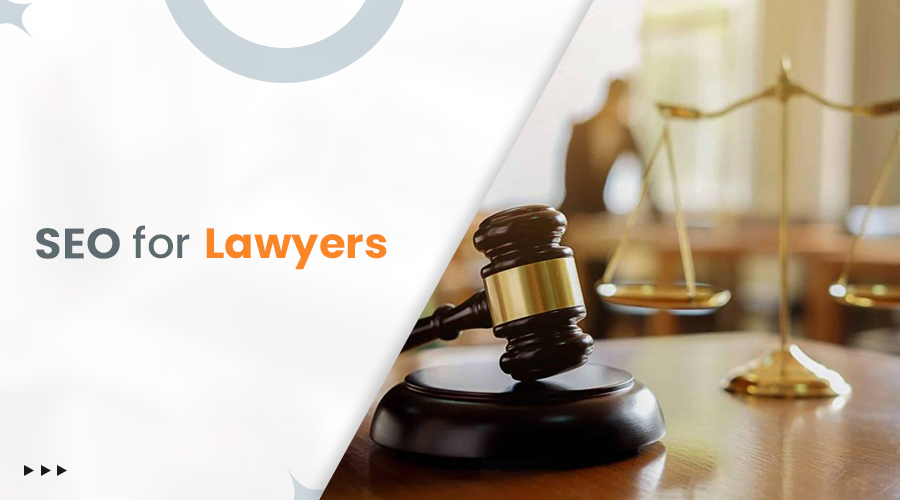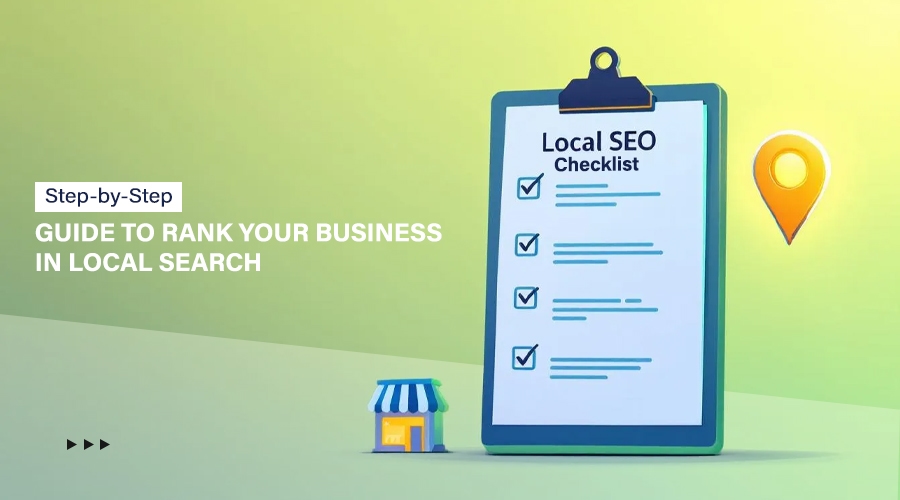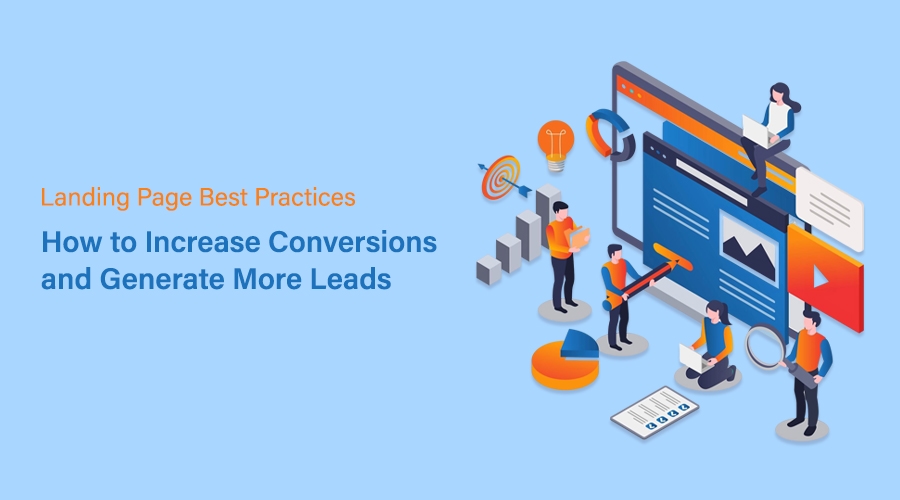SEO for Lawyers: Boost Your Law Firm’s Visibility
When people need legal help, what their instinct first tell them they do first?
They open Google and search for a trusted lawyer or advocate nearby.
It could be someone looking for a family lawyer, a business needing contract advice, or a person facing urgent legal trouble.
Do you know where the changes have taken place? Few people have the time to check flip directories anymore; they type queries directly in the search bar.
That means, if your law firm isn’t at the top of those results, potential clients will never be able to find your law firm. So, they will choose your competitors.
This is where SEO for lawyers becomes essential.
By optimizing your website, increasing online visibility, and building authority in your field, you make it easier for clients to find and trust you.
In this blog, we will show how SEO can give your law firm a real edge. You will learn to bring in high-quality inbound leads directly from search engines organically.
SEO for Lawyers to improve Online Visibility in a Nutshell
- Start with SEO Basics – Understand how search engines work, why keywords, backlinks, and user experience matter before diving deep.
- Prioritize Local SEO – Optimize your Google Business Profile, use location-specific landing pages, and collect client reviews to attract nearby clients.
- Create EEAT Content – Publish authoritative, trustworthy content that answers real legal questions and builds credibility with both clients and search engines.
- Don’t Ignore Technical SEO – Improve site speed, use schema markup for legal services, secure your website with HTTPS, and fix crawling or indexing issues.
- Build Quality Backlinks – Earn links from trusted directories, guest posts, and digital PR opportunities to position your firm as an authoritative legal resource.
How Can You Start Doing SEO for Lawyers Right?
Understanding the basics of SEO is crucial to getting started with SEO for law firms. When you have built a strong foundation for an SEO plan for your law firm, you can make smarter choices and avoid costly mistakes.
The first step is learning how search engines work, what factors influence rankings, and how search engines crawl pages. Learning why keywords, backlinks, and user experience will also give you a deeper understanding of SEO
This knowledge makes it easier to decide whether you will manage SEO in-house, partner with an SEO agency for law firms, or outsource to a professional law firm digital marketing company.
From there, focus on the essentials:
- Optimize your website so it’s fast, crawlable, mobile-friendly, and easy to navigate.
- Target local keywords like “divorce lawyer near me” or “business attorney in [city]” to build authority in a partial demography and attract more high-intent nearby clients.
- Build trust and authority by creating helpful content, attracting Backlinks, earning reviews, and getting listed on directories like Google Business Profile.
By starting with the basics and steadily improving your visibility, you will set your law firm up for long-term success.
How Does the SEO Work Today?
There is already a buzz that ‘SEO is dead’ or does not work the way it used to work. Is it true?
No, SEO is not dead. However, it’s a yes that SEO has evolved. With the rise of LLMs like Gemini, ChatGPT, and Perplexity, user search behavior has shifted, but the role of SEO has only become more crucial. In fact, SEO is important for law firms now more than ever.
Let’s take an example to understand the scenario better with respect to the legal industry.
For example, imagine people searched for “How do I register a trademark for my business in California?” on the Internet. Where will they turn first? These days, they will use either ChatGPT or even search for it on Google. They will try to find the answer in the AI Overviews. You may have noticed it appears right at the top of Google searches.
That means, even if your website has the same content, there is less chance that people will visit your website to get such an answer from your website. That is called the zero-click searches. This has been an uptrend as 60% clicks will become zero clicks in the coming years. This will impact the organic traffic as well.
SEO is dead, you may have murmured in your mind already! No, wait, there is a catch.
Where do the AI tools get the answer? Of course, the AI won’t invent new laws. Actually, it gets answers from the resources available on the web.
It will pull from existing online resources like law firm blogs, government websites, and authoritative legal guides. Mind it; this can be your website also!
If your law firm has published a clear, well-optimized guide answering that exact question, your content becomes part of what both Google’s AI Overviews and conversational AI tools reference.
That means your firm isn’t just visible on traditional search results but also indirectly present in the new AI-driven search experience.
This shows why SEO is far from obsolete; it’s the foundation that ensures your content can be surfaced and trusted by both humans and AI systems.
Another thing is what people do these days. If they do not get an answer in the AI overview part, they try to find the answer in the ” also ask section. These snippets have also become critical SEO for lawyers strategies.
Best Tips on SEO for Lawyers: Approved By a Trusted SEO Company for Lawyers
A reliable SEO agency for law firms takes a comprehensive approach to SEO strategies. They take local relevance, user experience, and your budget into consideration and bring a highly customized plan for SEO.
Here are some of the SEO practices that every expert follows!
Get Your Keywords First
Keyword research, analysis, and mapping are the foundation for SEO for law firms. This is the first and foremost step that everyone takes to initiate SEO efforts.
First, understand your user intent. If you get this, you can easily brainstorm your seed keyword. Or, else you can just primarily search for relevant terms like ‘divorce lawyers near me’ or anything relevant to your area of practice [ If this is your target niche] directly on the Google search bar, you will get thousands of ideas from there. Note down the most relevant one.
Now, use any free tool, such as Google Keyword planner, or paid tools like Semrush or Moz. When you put the seed keyword there, you get the most relevant keyword out of this.
Of course, you will have to compare the competition like Keyword competition, such as keyword density, search volume, and other metrics.
Plan the Website Structure and User Experience
A well-planned site structure makes it easy for visitors and search engines to validate, crawl, and index your site. So, make sure:
Your website is well structured: The CTA, forms, and Menus are organized logically.
- User experience: The website has a splendid user experience, which means it loads faster, and customers can easily find what they need.
- Mobile Responsiveness: Make sure your website is visible and well-functional on smartphones, as search engines like Google index mobile-responsive pages faster. Another thing is, nearly 70% of nearby searches occur on smartphones. Hope you have enough reasons to get a mobile-responsive website.
- Website Navigation: Organize your website by practice areas (family law, criminal defence, corporate law, etc.) and make sure navigation is simple. The easier the experience, the longer visitors will stay, which signals to Google that your site is trustworthy.
Use EEAT Content
EEAT stands for Experience, Expertise, Authority, and Trustworthiness. For law firms, this means creating content that shows real legal knowledge, is backed by attorney credentials, and provides accurate information.
Actually, EEAT content is commonly referred to as SEO friendly content. First of all, it enhances the search experience of users who actually need real advice. Secondly, it can be easily crawled by the search engines.
Here is how our SEO company for lawyers, structure our content strategy for SEO:
- Top of the Funnel: We create content on queries that people search. Use blogs, articles, FAQ pages, and service page content on general queries
- Middle of The Funnel: Create case studies, blogs, whitepapers, reports based on primary research papers [ for middle of the funnel]
- Bottom of the Funnel: Use client testimonial videos, in detailed blogs, and relevant video content
On Page SEO
On-page SEO is about optimizing elements directly on your website.
This includes
- Using keywords in titles and headings
- Writing clear meta descriptions
- Using SEO tags
- Adding alt text to images
- Ensuring your content is structured for easy reading.
- Building internal links in blogs, services pages
It improves the website experience and even helps Google crawl and index all relevant pages faster.
However, on page and technical SEO are related. Without, improving the technical SEO, you can ‘t improve the on-page experiences, right?
Technical SEO
We have already told how technical SEO improves user experience and ultimately helps your on-page SEO efforts.
It’s a vast topic, and honestly, you should hire an SEO company for lawyers to get it done.
Here is a simple checklist, as we know things are complicated:
- Website Speed: Google Page Speed Insights or GT Matrix to check out your website to load faster.
- Enable Cache: Caching stores parts of your website (like images, CSS, and scripts) in a visitor’s browser. This means when someone returns to your site, it loads much faster. A faster website improves user experience and is favored by Google, helping your rankings.
- Use Schema Markup: Schema markup is a type of code added to your site that helps search engines understand your content better. For law firms, this could mean adding schema for attorneys, FAQs, reviews, or services. With schema, your site can appear with rich snippets (like star ratings or “people also ask” highlights), making you more visible in search results.
- XML Site Map: An XML sitemap is like a map for search engines. It lists all the important pages on your website and tells Google how to crawl and index them. For law firms with multiple practice area pages (family law, business law, personal injury), a sitemap ensures none of your critical pages are missed.
- HTTP Security: Using HTTPS (instead of HTTP) secures the connection between your website and visitors. For a law firm, this is crucial since clients may share sensitive information through forms. Google also uses HTTPS as a ranking factor, so having a secure site boosts trust and SEO.
- Core Web Vitals: Core Web Vitals are Google’s way of measuring real-world user experience on your website. Some of the core factors here:
- Loading speed (how quickly your page shows up or content loads) means LCP.
- Interactivity (how fast your site responds when someone clicks) means INP.
- Visual stability (does the page shift around while loading?) means CLS.
Optimize Your Website Local SEO
Do you know that more than 96% of people who need legal advice search on the internet? If you can build local relevance and rank on the Google map, this will actually help your law firm get new leads.
Here are some of the best practices for local SEO for law firms:
- Make the best Use of Google Business Profile
Google Business Profile is more like a personalised online profile for the Google map pack. Google displays these profiles at the top of the results for local searches.
So, if you want to expand your client base in a particular city, having an optimized GBP account is a must.
- Google Business Profile will show your law firm’s name, reviews, hours, and location in near me searches on Google. It actually takes your services available to the high-intent people who are browsing information. Probably, they will call you for an appointment or for questions right after visiting the premises.
Here is how our SEO for lawyers makes the most of GBP:
- Keep it updated with correct info,
- Post Google updates or add photos twice a week or as needed
- Update the latest information on your main practice areas (e.g., personal injury, criminal defense).
- Online Reviews: Reviews build trust and credibility. Encourage satisfied clients to leave reviews on your Google profile and other platforms. Positive reviews improve your chances of ranking higher in the local pack.
- Use Location Specific Landing Page: If your law firm serves multiple areas, create separate landing pages for each. For example, instead of a single general page, consider creating separate pages for “Divorce Lawyer in Toronto” and “Divorce Lawyer in Mississauga.” Each page should highlight your services for that location. It improves visibility on location searches and increases the chance of getting organic traffic easily.
- Use Localised Content and Keyword:
Make sure the dedicated page has the address, phone number, office hours, and attorney details. Implement localised content and keywords around this on the pages. Write content that mentions your city, region, introduces the local laws, or mentions that people nearby face problems with that. This tells search engines you are relevant for local searches.
- Build Local Citations and Get Listed on Local Business Directories
Citations are mentions of your business name, address, and phone number (NAP) on websites like Yelp, Yellow Pages, FindLaw, and legal directories. The more consistent your citations are, the more search engines trust your firm.
- Using Local Business Schema
Implement the legal service schema code on your website. Here you can add and validate important details, your law firm logo, map location URL, website link, all It tells Google:
- You are a law service provider
- What kind of law do you practice (e.g., Family Law, Criminal Defense, Personal Injury)
- Where are you located
- How can people contact you
This makes your listing more relevant in local searches. That’s how you can also show extra details like reviews, addresses, and FAQs in search results. It also helps your
Thrive on Back Link Opportunities
In short, the aim of link building strategies is to show Google that your firm is a trusted legal resource. For that, you will need to earn relevant links from high-authority, credible sites.
It’s not easy to.
- You will have to be prudent and sceptical about quality.
- How does our SEO agency for law firms handle this?
- We conduct in-depth backlinks analysis of our client’s competitors.
- Once we find out the opportunity. We plan as per.
Most of the time we :
- Reach out for a broken link opportunity
- Use guest posts [ that one is our favourite]
- Digital PRs, [ currently we are exploring it]
Do You Need Help with SEO? We are here!
Lawyers and law firms need clients who trust them. However, today, most people seek legal help on Google, not in a phone book. If your firm isn’t showing up in those searches, you’re losing cases to your competitors.
That’s where we come in. We specialize in SEO for lawyers. We ensure your firm ranks higher for the keywords people actually search for, such as “family lawyer in [City]” or “business contract attorney near me.”
Our SEO efforts are focused on attracting the high intent clients as we constantly track organic traffic, website visibility, and traffic. Additionally, we also track conversion matrices, including calls, form fills, and requests for consultations.
We utilize free and powerful tools, such as Google Analytics, Google Search Console, and Microsoft Clarity, to measure everything that matters. This means you will always know what’s working and where your ROI is coming from.
Our approach is practical, local, and focused on real results. Our SMART goal sets us apart from other agencies specializing in SEO for law firms. We build authority for your practice areas, optimize your website, and help your law firm stand out in competitive markets.
If you want more cases, stronger visibility, and a steady stream of high-quality leads, our SEO services for lawyers can get you there.
Call us now or book a 30-minute free consultation call with our team!
Frequently Asked Questions
Can I do SEO on my own, or should I hire an SEO agency for law firms?
You can handle basics like updating content or the Google Business Profile. But for long-term growth and competitive practice areas, an SEO agency saves time, avoids mistakes, and drives faster results.
Why is local SEO important for law firms?
Local SEO is important for law firms because it helps your law firm appear when people in your area search for legal help. Most clients search “lawyer near me” or add a city to their query. It builds your visibility, attracts nearby clients, and positions your firm as a trusted authority in the community.
What are the best SEO tips for law firms to boost visibility and generate leads?
Some of the best SEO tips for law firms to boost visibility and generate leads are to use location-specific keywords, publish helpful content, optimize your Google Business Profile, get quality backlinks, and make your site fast and mobile-friendly.
Why are client reviews crucial in local SEO for law firms?
Client reviews are crucial in local SEO for law firms because Positive reviews build trust and improve rankings in local search. Clients often choose the lawyer with the best reputation online, not just the one they see first.
How important is content marketing in legal SEO?
Content marketing is very important in legal SEO because clear, useful articles and FAQs answer client questions, build authority, and help your site rank for more keywords. It shows people (and Google) that you’re an expert.





